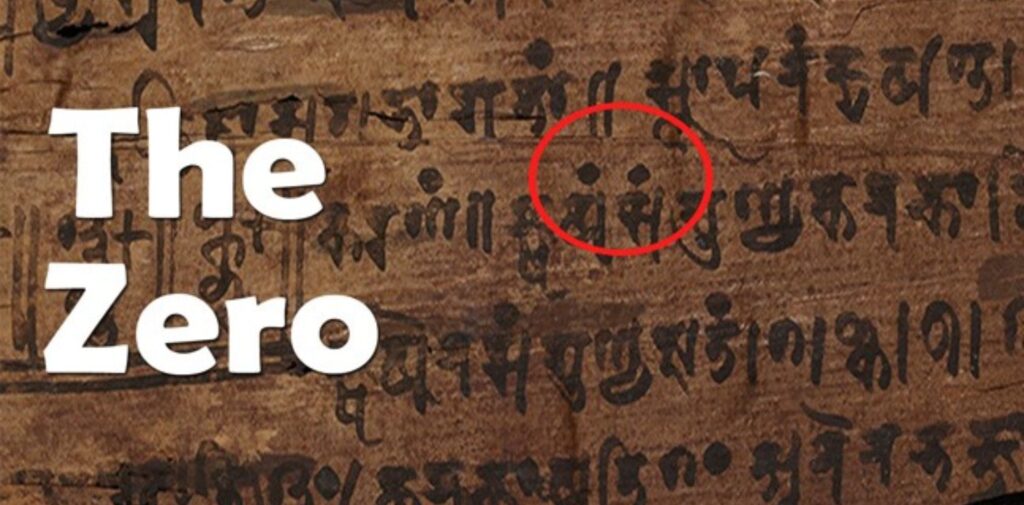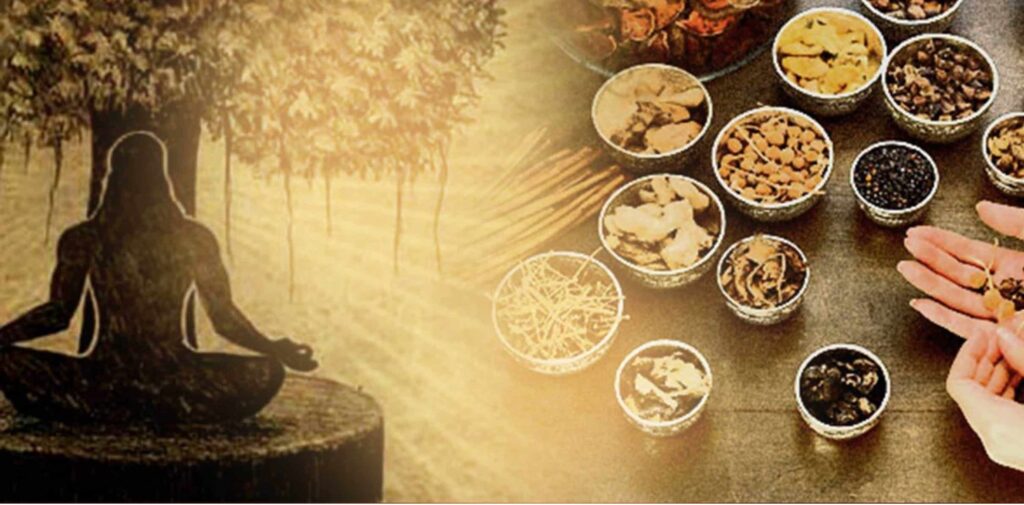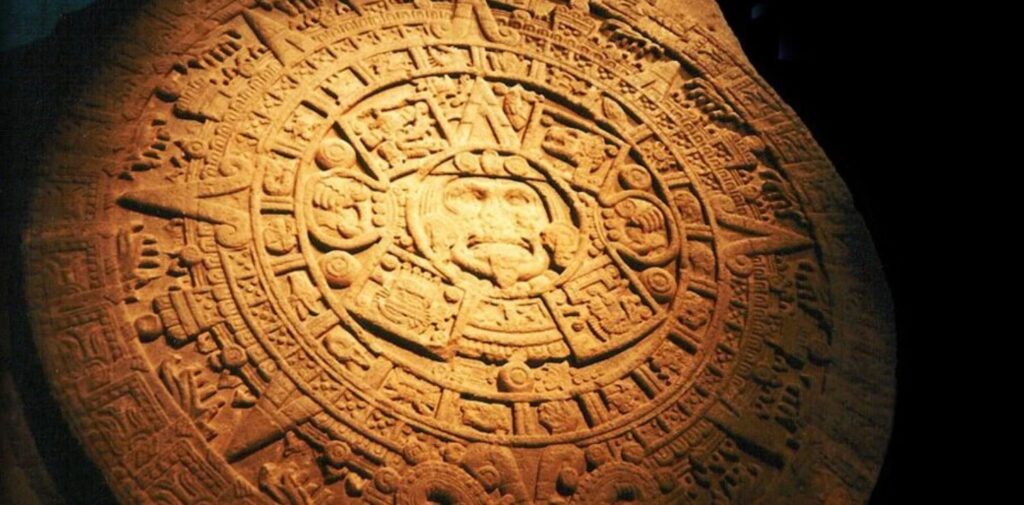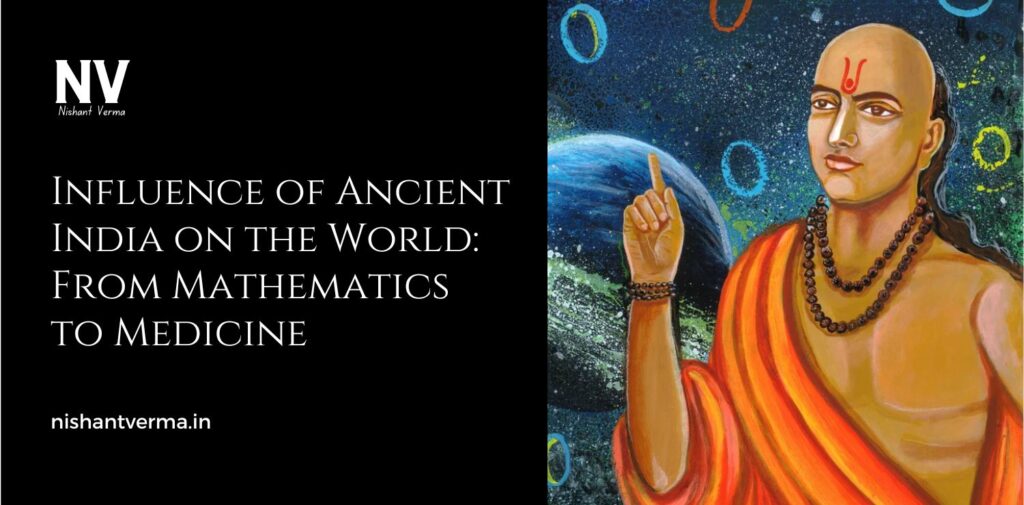India is an ancient land, known for its rich culture, history, and amazing achievements. Thousands of years ago, people in India made discoveries and developed ideas that not only shaped their own country but also had a huge influence on the rest of the world. From mathematics to medicine, the contributions of ancient India are still important today. This article will explore how the ideas from ancient India have helped the world grow and develop in many areas, making life better for all of us.
The Birth of Zero: A Gift to the World
One of the greatest gifts India gave to the world is the number zero. Yes, you read it right! The concept of zero, which is used in almost everything today, was invented by ancient Indian mathematicians. Before this, people in the world didn’t have a symbol for “nothing.”
The first use of zero as a number is credited to the great Indian mathematician Aryabhata in the 5th century. This idea changed the way we think about numbers. Imagine doing any math problem today without a zero – it would be almost impossible! Zero allows us to do addition, subtraction, multiplication, and division and is essential in fields like technology, engineering, and even space travel.

The Indian Number System
India’s influence on mathematics didn’t stop at zero. The Indian number system, which uses digits from 1 to 9, is the system we use today! Long ago, Indian scholars invented this system, and it was later spread to other parts of the world, including the Arab world and Europe. This system is also called the Hindu-Arabic numeral system, and it made math much simpler and easier to use than the systems that were used before.
The famous mathematician Brahmagupta is known for making significant improvements to the way we understand numbers. He wrote a book called “Brahmasphutasiddhanta”, where he explained rules for negative numbers and how to perform operations like division and square roots. His ideas influenced many other cultures and are still used in schools and universities today.
Indian Mathematicians and Their Discoveries
India has been home to many great mathematicians. Apart from Aryabhata and Brahmagupta, another brilliant mind was Bhaskara I, who worked on the theory of algebra. Bhaskara II, also known as Bhaskara Acharya, made major contributions to calculus and astronomy. His work helped future mathematicians and scientists make even greater discoveries. The idea of algebra and trigonometry, which are essential for solving math problems in school, all have roots in India.
Ancient Indian Medicine: Ayurveda
In addition to mathematics, India has also made significant contributions to medicine. One of the oldest and most well-known systems of medicine in the world is Ayurveda. Ayurveda, which means “the science of life” in Sanskrit, was developed in India more than 3,000 years ago.
Ayurvedic medicine is based on the belief that health is a balance between the body, mind, and spirit. It focuses on using natural remedies such as herbs, oils, and special diets to heal and prevent diseases. Many of the treatments used in Ayurveda are still in practice today, and they are known to help with everything from digestive problems to skin diseases.

Sushruta and Ancient Surgery
One of the most remarkable figures in the history of Indian medicine is Sushruta, an ancient Indian doctor who lived around 600 BCE. He is often called the “father of surgery.” Sushruta wrote the Sushruta Samhita, a medical text that describes more than 300 surgical procedures and more than 120 surgical instruments. He performed surgeries like nose reconstruction (plastic surgery) and cataract surgery. These procedures were centuries ahead of their time and laid the foundation for modern surgery.
Sushruta’s ideas and practices spread to many parts of the world, especially to the ancient Greek and Roman civilizations, where they were studied and improved upon. Even today, plastic surgery and eye surgery are fields that owe much of their knowledge to Sushruta.
The Concept of Vaccination
India also played an important role in the development of the vaccine. The idea of inoculation—which is giving a person a small amount of a disease so that their body can build immunity—was used in India long before it became common in the West. This practice is called variolation, and it was used to protect people from smallpox.
The pioneering work of Indian doctors, such as Bhai Ram Singh, helped spread the idea of vaccination. Later, when British doctor Edward Jenner discovered the smallpox vaccine in the late 18th century, he was inspired by the practice of variolation in India. Today, vaccines save millions of lives around the world, and it all started in ancient India.
Indian Astronomy: Exploring the Stars
India’s influence on science goes beyond medicine and mathematics. Ancient Indian astronomers were among the first to study the stars, planets, and the movement of celestial bodies. The Rigveda, one of the oldest texts in India, mentions the importance of astronomy and gives instructions on how to understand the cosmos.
The mathematician and astronomer Aryabhata was one of the first to suggest that the Earth is round and rotates on its axis. He also correctly explained the cause of eclipses and was able to calculate the length of the year with great accuracy. Aryabhata’s discoveries helped later scientists understand the universe better.
Another brilliant Indian astronomer was Varahamihira, who made important observations about the planets and stars. His work influenced not only India but also other parts of the world, especially in the field of astrology and astronomy.
Indian Texts and Their Influence on the World
India’s ancient texts have influenced many countries across the world. The Vedas, the Upanishads, the Ramayana, and the Mahabharata contain knowledge about everything from philosophy and spirituality to science and medicine. These texts were passed down from generation to generation and have been translated into many languages.
The Brahmasphutasiddhanta, written by Brahmagupta, was translated into Arabic and spread throughout the Middle East, where it helped develop the study of mathematics. Many ideas from ancient Indian texts influenced the Islamic Golden Age, especially in the fields of mathematics, astronomy, and medicine.

Ancient Indian Influence on Modern Science
The contributions of ancient India didn’t just stay in the past; they shaped modern science as we know it today. The concept of zero, for example, is used in computers and technology. The principles of Ayurveda are becoming more popular in modern wellness practices, and many of the surgical techniques pioneered by Sushruta are still used in hospitals.
Indian mathematicians and scientists have inspired many generations of people to think differently, ask big questions, and seek answers through knowledge and discovery.
Conclusion: A Legacy That Lasts
Ancient India has given the world so much, and its influence can still be felt today in many different areas. From mathematics to medicine, from astronomy to surgery, the discoveries made by Indian scholars helped lay the foundation for many of the things we use today. The brilliance of ancient Indian minds helped shape the modern world, and their ideas continue to inspire scientists, doctors, and thinkers around the globe.
As we move forward, it’s important to remember the incredible legacy of ancient India. The knowledge and discoveries from thousands of years ago still affect our daily lives, showing that the wisdom of the past is always relevant in the present. The world owes much of its progress to the ideas, inventions, and wisdom of ancient India.




